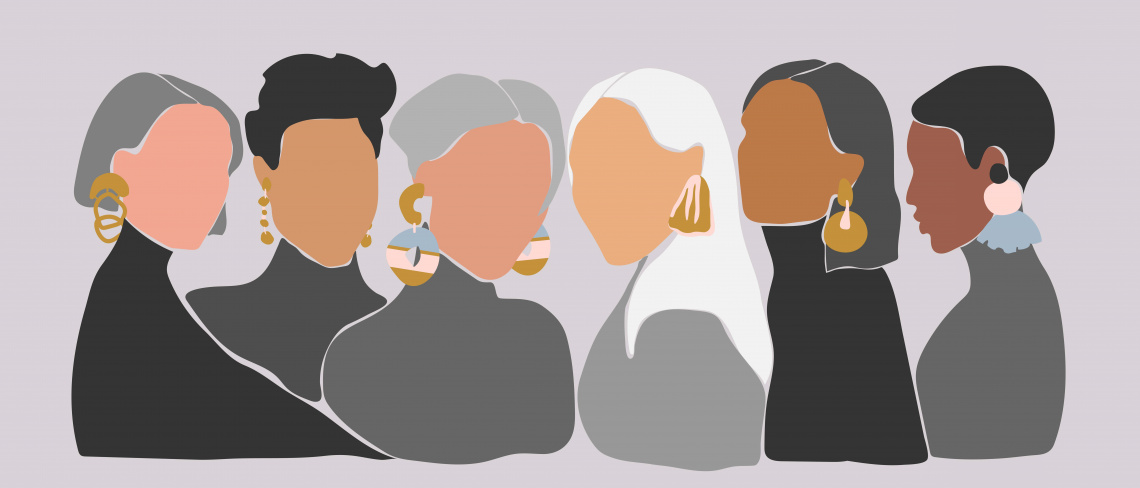No woman can avoid it, and yet so few talk about it. Why is there such a stigma attached to menopause?
‘I had no problem telling colleagues about feeling forgetful and fatigued when I was pregnant because both my male and female co-workers were incredibly supportive,’ says one businesswoman. ‘But menopause was different. Despite getting lost (even with a GPS), arriving late to important meetings, double and triple-booking calendar time slots, missing flights, and not being able to recall what someone had said to me just a few minutes earlier, I never felt comfortable revealing the real cause.’
It happens to every woman at some point – in every culture and in every country. Yet even when we suffer debilitating symptoms, many of us choose to zip our lips when it comes to ‘The Change’. Yes, we might shriek about hot flushes together and spend many happy hours discussing the dubious merits of a face lift, but chances are we aren’t all that forthcoming when it comes to the seriously unfunny aspects of menopause, such as vaginal dryness, painful sex, loss of libido and increased urination.
It’s not surprising. Even outspoken female celebrities (think Oprah Winfrey and Angelina Jolie) have only recently started speak candidly about this stage of life – and Gwyneth Paltrow believes there are not enough positive role models for menopause. ‘It gets a bad rap and needs a bit of rebranding,’ she says.
She’s right. It’s time we not only started talking about menopause, it’s time to speak about it positively. Like most taboo subjects, the more we talk about it, the more we normalise it – and the more we learn how to get the most out of this new phase in our lives.
But why are we so reluctant to talk about it?
American psychologist Dr Vivian Diller, author of Face It: What Women Really Feel as Their Looks Change offers these reasons.
We’re embarrassed:
‘For most of us, the first signs of peri-menopause foreshadow vulnerability and the potential loss of the image we have come to associate with being a successful woman today,’ says Dr Diller. Tip: Accept that menopause is a natural life transition, not a weakness or disease.
We’re confused:
‘Perimenopause, for many, can be challenging,’ says menopause specialist Dr Caoimhe Hartley. ‘A feeling of losing yourself, your confidence, feelings of irritability or tearfulness or rage which is abrupt and shocking. Some women describe an anxiety which is new and utterly debilitating.’ Tip: One of the best ways to regain control is through gathering information. Talking about menopause is an opportunity to educate yourself

We’re in denial:
‘Some women convince themselves that menopausal symptoms just don't apply to them,’ says Dr Diller. ‘It's almost as if talking about it makes it real, so they remain in disbelief.’ Tip: Acknowledging that your symptoms are real and talking openly about them is the first step in coping with menopause.
We’re fearful:
‘It's surprising how much anxiety plays a role in keeping menopause a secret,’ says Dr Diller. ‘Mostly, it's the fear of becoming asexual, unattractive, invisible and useless. Sometimes it's the fear of becoming our mothers. Sometimes it’s the fear of being seen as less than all-powerful. ‘I didn’t dare risk explaining why she wasn’t functioning optimally because I worried menopause might be seen as a weakness and detrimental to my career,’ says one woman. Tip: While we may have few role models for how to navigate menopause (our parents' and grandparents' experiences were quite different), take notice of women today who are living full and vital lives well into their 80s. We can learn a lot from them.
We’re grieving:
As one high-flying executive explains, when she entered menopause, she felt ‘a nothingness’. Valued mostly for our roles as fertile beings and mothers, many women feel marginalised once that phase has ended. ‘The message, never stated directly but manifesting in myriad ways, is an overwhelmingly nihilistic one: your usefulness is over,’ she says. ‘Please step to the sidelines.’ Tip: ‘Moving on is a basic necessity in the process of aging gracefully,’ says Dr Diller. ‘If you find yourself focused only on sadness, cry on your friend's shoulder and your doctor's too. Expressing sadness is key to helping you let go. There are a lot more years ahead – your goal is to find new ways to enjoy them.

Ways to start the conversation:
Have a sense of humour.
If you’re going to break out in a sweat at inappropriate times, you might as well find the humour in it. This doesn’t mean trivialising your symptoms – it means finding the lighter side of them.
Tap into the best support system out there – other women.
Turn to your friends, sisters and community for help. Lean on each other and learn from each other. You don’t have to suffer in silence.
Talk to your doctor.
Don’t be embarrassed to ask for help for your menopause symptoms. If hormone replacement therapy isn’t for you, ask your doctor about alternate treatments and remedies.
In short, let’s stop viewing menopause as something to hide and start talking openly about it. While we’re at it, let’s focus on how we can make the most of the opportunities for growth and change as we age.








Comments